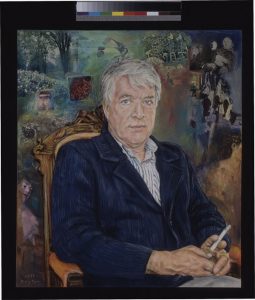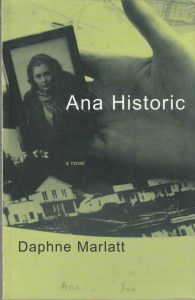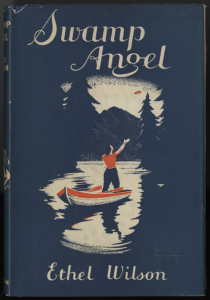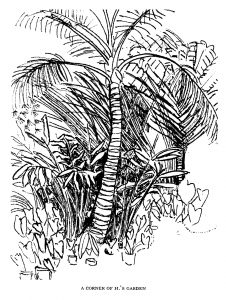The Wars by Timothy Findley
The Wars, which won the Governor General’s Award for Fiction in 1977, is an example of what influential Canadian literature critic and theorist Linda Hutcheon terms historiographic metafiction.
Ana Historic by Daphne Marlatt
Influenced by both avant-garde poetry and Virginia Woolf’s stream of consciousness narrative mode, Daphne Marlatt’s Ana Historic follows the mind of the narrator, Annie, at work. While researching the history of Mrs. Richards, a mysterious woman who appears in the civic archives of Vancouver in 1873, Annie’s mind jumps from her research to her personal struggle with her mother’s suicide, intermingling the three women’s stories on the page. The layout and typography change as perspective shifts, offering a collage of the women’s lives, serving as analogues to one another.
Swamp Angel by Ethel Wilson
Considered one of Wilson’s most accomplished works, Swamp Angelfollows Maggie Vardoe (later Lloyd) as she flees her husband in Vancouver to help run a fishing lodge in the interior of British Columbia. The novel illustrates the tension between her personal autonomy as a woman, and the needs and perceptions of a largely heteronormative community. Through the transformations of the main character, we can observe a process of attaining personal agency and self-actualization in the midst of societal constraints.
Close Reading Prose
The goal of a close reading is to produce a convincing and thorough interpretation of a text. Even straightforward prose can contain a trove of literary devices and strategies to either guide the reader toward meaning or obfuscate meaning altogether. While close reading, it is not only important to understand what authors are saying, but also, how they are saying it.












 ©
©